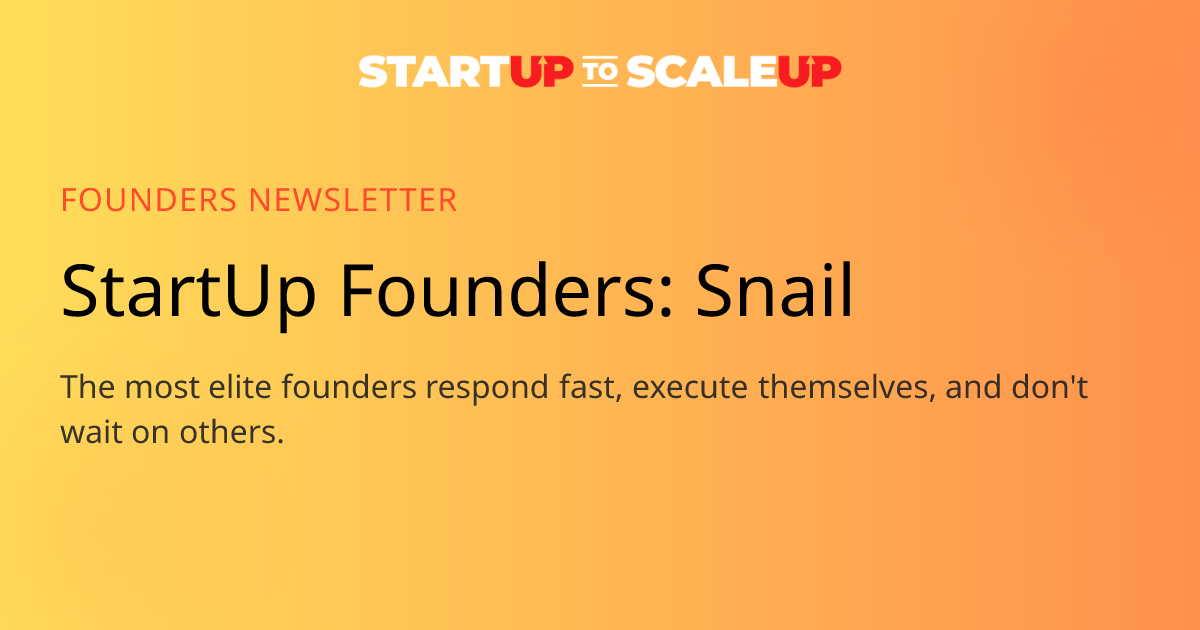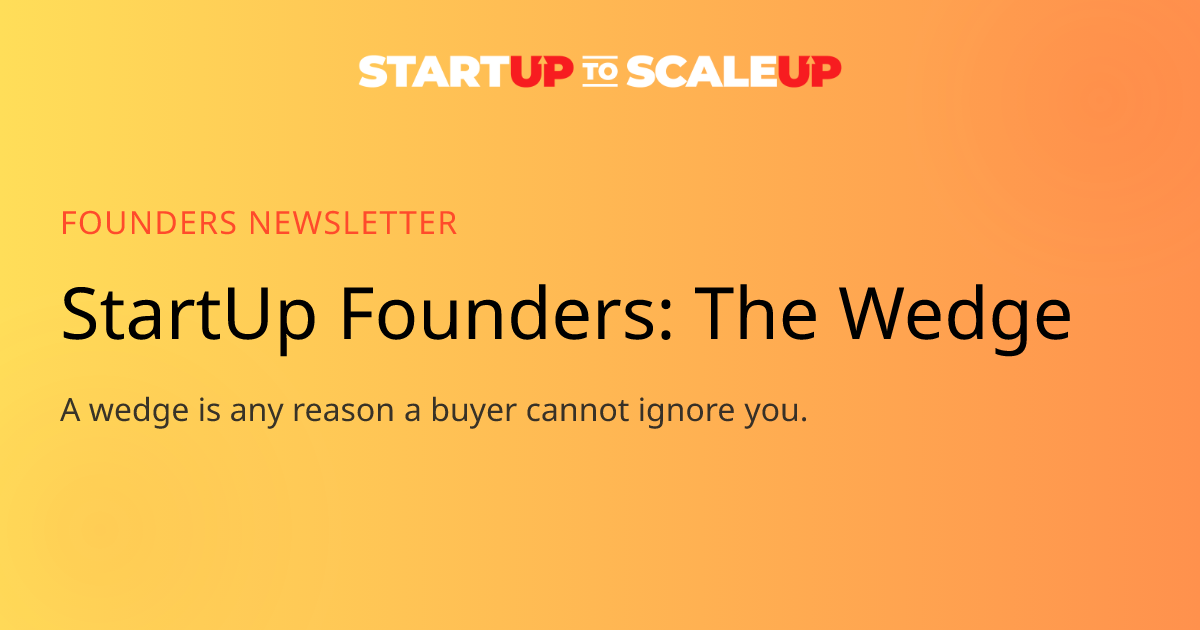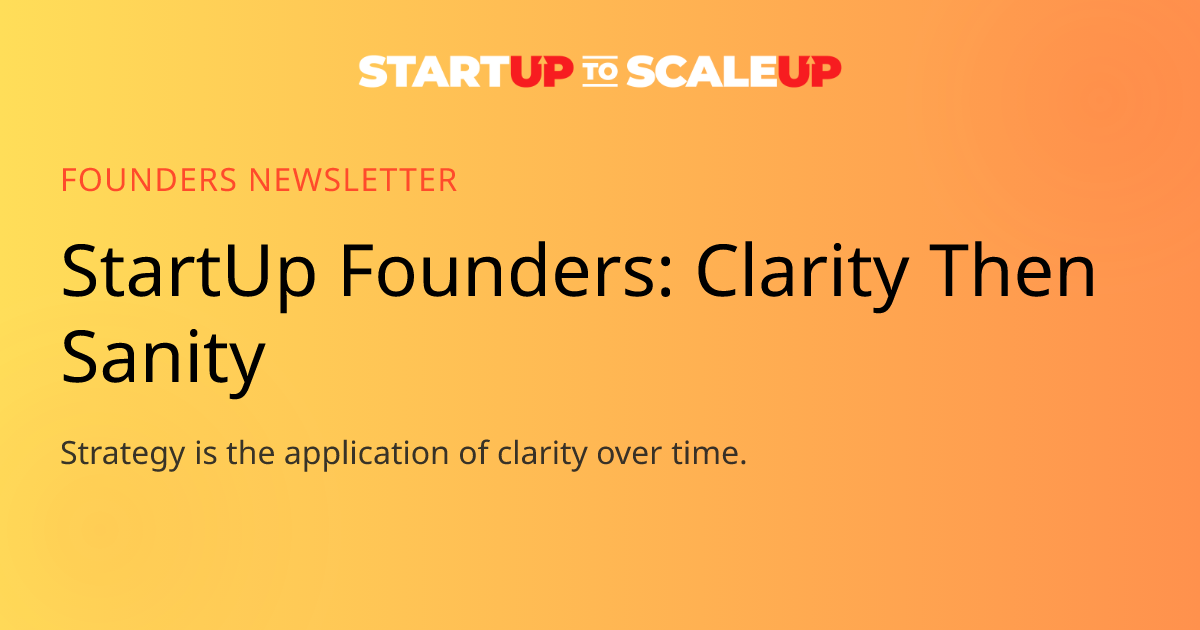Founder Mindset: How Accountability, Boldness, and Empathy Drive Startup Success and Resilience
Published December 22, 2024
Core Takeaway
TLDR
- Adopt an 'internal locus of control' by taking total ownership of outcomes - it's not the market, investors, or competition, it's you
- Overcome the 'spotlight effect' by realizing people aren't focusing on your failures as much as you think - this freedom enables bolder moves
- Practice empathy by fighting the 'fundamental attribution error' - understanding others' circumstances leads to better relationships and strategic advantages
Newsletter
Hey Reader,
First, wishing you and yours a healthy, happy holiday season, and a moment for real reflection.
Second, thank you. I started this newsletter 18 months ago to stay connected with people who reached out for assistance. 150k readers later, it's the best part of my week. I have no saved drafts. Just me, every Friday night, arguing with myself about what I want to say.
Feel like leaving a testimonial?
I want to share three (of many) mindset shifts that changed how I think and operate as a founder:
Accountability: It's all my fault
aka Internal Locus of Control
It's not always literally true, and often, it's not totally fair, but adopting total ownership over outcomes changes everything.
Accountability is cultivating an internal locus of control. The (real) belief that you have the power to influence events and outcomes vs being a victim of external forces.
When you truly believe you influence every result, an immediate shift occurs. Blame becomes irrelevant. Blame is exhausting.
It's not the algorithm, the engineer, the investor, the market, the economy, or your co-founder. It's you. Own that.
This isn't manifesting. That's the positive thinking and visualizing. ILoC is about taking ownership AND action. Think it, do it, own it (the results).
Judgment: They're not thinking about you at all
aka Escaping the Spotlight Effect
So much isn't done because you are concerned, worried, or feel judgement on whatever it is you are not doing. The LinkedIn post, cold email, build in public, speaking up, product idea. The fear of judgment blocking you is not real, it has a name -> "spotlight effect" -> we overestimate how much attention others pay to our actions.
Eight years ago in NYC a woman waved at me, I waved back, then she got in the cab she was waving down. She probably didn't even see me. I still think about it, sometimes daily. That's the spotlight effect... overestimating how much people notice or care.
Accepting how little people focus on me (was humbling) but.. I got bolder which enabled bigger ideas, bigger bets. The market responded differently because I was showing up differently.
(It's not easy. My TikTok acct. I would rather be in the coffin than giving the eulogy, I have hundreds of drafts, but when I do post, it almost always leads to something great.)
Every founder who's broken through had to get comfortable being uncomfortable. The first pitch, the bold claim, the controversial take... All started with a founder prioritizing the need to succeed over fear of judgement.
Empathy:
Battling the Fundamental Attribution Error
We often attribute how other people act to who they are rather than what they're going through. Assumptions are the enemy of understanding.
When you accept that you don't know what battles others are fighting, you default to patience, better communication, and less wasted cycles on resentment. Empathy is a massive strategic advantage, it strengthens how you show up and do everything.
These three mindsets live together. Accountability drives action. Freedom from judgment enables boldness. Empathy ensures we're building something that matters.
In addition to using Q5 to get your house in order. Maybe also a chance for deeper reflection and remembering why you started this wrecking ball of a journey in the first place.
Showing up better for yourself won't just make you a more effective founder. You'll be a clearer, more resilient human being.
I read every end-of-year recap newsletter you sent my way. Thank you. They matter. They're part of your story, and your story matters to me.
Stay human. Stay hungry. Stay humble.
As always, if I can be of service, feel free to grab time.
LFG.
-- James
Frequently Asked Questions
More Newsletters
Continue Your Founder Journey
Explore all the resources available to help you build and scale your startup
Startup Frameworks Library
Subscribe to the Newsletter
Join 140,000+ founders getting exclusive strategies, frameworks, and founder stories every Sunday.
Get instant access to the 50-Step Founder Playbook downloaded over 1M times



